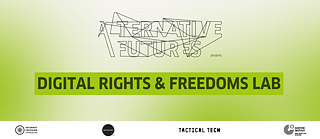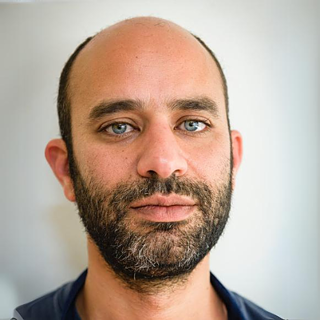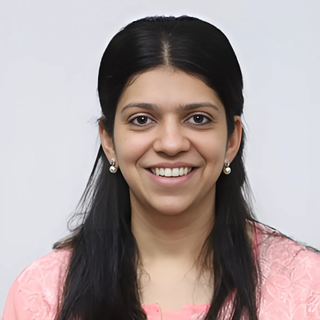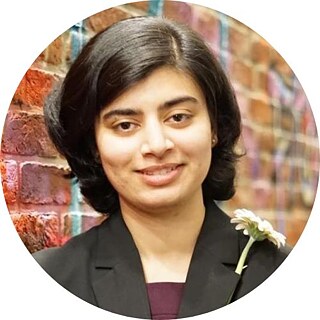Panel Discussion
Alternative Futures: Seeing like a Digital State, Advocating like a Citizen

Digital IDs: Platformisation, Public Infrastructures, and the Digital Citizen
A Digital State is built on tech-enabled public infrastructures, platformisation of state functions, and digital identity systems. Digital ID projects are used as foundations for complex data-hungry systems which citizens are made to frequently interact with, but often, such interactions are coercive, unequal, and mandatory channels to invoke a State’s obligations and enforce one’s constitutional entitlements. The nature of digital interventions in the public sector is also such that implicates a variety of stakeholders, from government officials, community workers, project consultants, to researchers, lawyers, civil society, labour unions, communities, and you, an Indian citizen. With this wide engagement comes a wide spectrum of harms that digital IDs and their integration with digital public infrastructures presently pose to individual privacy, autonomy, and dignity at large. Why, then, do we continue to move towards a Digital State? How does this play out in the Global North vs. the Global South?
This panel, with voices from different points in the value chain of digital IDs and infrastructures, will explore what it means to build a Digital State. Speakers will delve into the relationship between the citizen and the State—of powerplay, trust, and, the social contract; the role of data and value of privacy in erecting public infrastructures; the anxious relationship between the public and the private; and the effect of appointing the State as a custodian of citizen data using principles of ‘sovereignty’.
Join us for a discussion on how digital infrastructures are reshaping power, privacy and public trust.
Panelists

Muhammad is the Project Lead for The Glass Room project at Tactical Tech, a role he has held since 2019. The project offers organizations, museums, and universities an innovative exhibition that explores the challenges of the digital world. Prior to this, Muhammad founded icecairo, one of Egypt’s first innovation spaces, which supports social entrepreneurs focused on climate, environment, and sustainability. He has also served as a business modeling consultant for tech hubs and as a trainer on digital safety and related issues. Muhammad is deeply passionate about the intersection of digital safety, privacy, climate justice, and technology. He holds a B.Sc. in Industrial Engineering from Texas A&M University.

Disha Verma is an Associate Policy Counsel at Internet Freedom Foundation. A lawyer by training, Disha worked in health policy with expertise in community health and disease response before transitioning to tech policy. At IFF, she engages with tech deployment and digitalisation in the public sector with a focus on welfare distribution and social security, digital public infrastructure, governance AI, surveillance, policing, and digital transparency.

Mansi is Senior Fellow at ICRIER with over fourteen years of experience in public policy. Her research focuses on issues of the digital economy including governance of the internet, impact of emerging technologies, competition and digital public infrastructure. She was Co-Chair of the T20 Task Force on Our Common Digital Future: Affordable, Accessible and Inclusive Digital Public Infrastructure (2023), a Mid-Career Fellow of ISOC (2022) and member of the Direct Tax Committee (2017) and. She earned her B.Sc. Economics from St. Xavier’s, Kolkata, MBA from ISB, Hyderabad and PhD from IIFT, New Delhi.

Rahul Bhatia is an award-winning Indian author and journalist based in Mumbai. His first book is the best-selling The Identity Project (published as The New India internationally). His work has been published in the New Yorker, Guardian Long Reads, and other publications. He won the True Story Award in 2024, and was a Harvard Radcliffe Institute fellow in 2022-23. He mentors writers and journalists as part of the ‘South Asia Speaks’ collective, and was a co-founder of the Peepli Project, a journalism non-profit. A former advertising art director, Rahul Bhatia graduated in communication design from Pratt Institute, New York.

Rainer Rehak is a researcher in the "Digitalization, Sustainability, and Participation" group at the Weizenbaum Institute and an associated researcher at the WZB. He is pursuing his PhD at TU Berlin on IT security and data protection, with over 15 years of experience studying the societal impact of digitalization.
His expertise includes data protection, IT security, state hacking, and the ethics of AI systems. He serves as an expert witness for parliaments and courts and co-initiated the "Bits & Bäume" conference on digitalization and sustainability. He will join the panel online.
Moderation

Aditi Agrawal is a special correspondent at Hindustan Times where she reports on technology policy, privacy, online free speech, cyber security and surveillance. She also reports on the election commission of India. ERROR (Expression): Element STPAGEDATA.SITE.SITEONLINEURL is undefined in REQUEST.
About Alternative Futures - Discussion Series on Digitalization and Society
Alternative Futures is an initiative that aims to forge connections between civil society institutions in South Asia and Germany, focusing on the use of digital media to promote democratic practices and structures. The project provides a platform for activists, researchers, and experts from digital civil society institutions to exchange concepts, strategies, and insights. The discussion series expands these conversations to a broader audience, bringing together civil society institutions, activists, and experts.The event is a collaboration between Tactical Tech, the Internet Freedom Foundation, Quicksand and the Goethe-Institut.
Details
Goethe-Institut / Max Mueller Bhavan New Delhi
3, Kasturba Gandhi Marg
New Delhi
110001
India
Language: English
Price: Free Entry. Registration Mandatory.